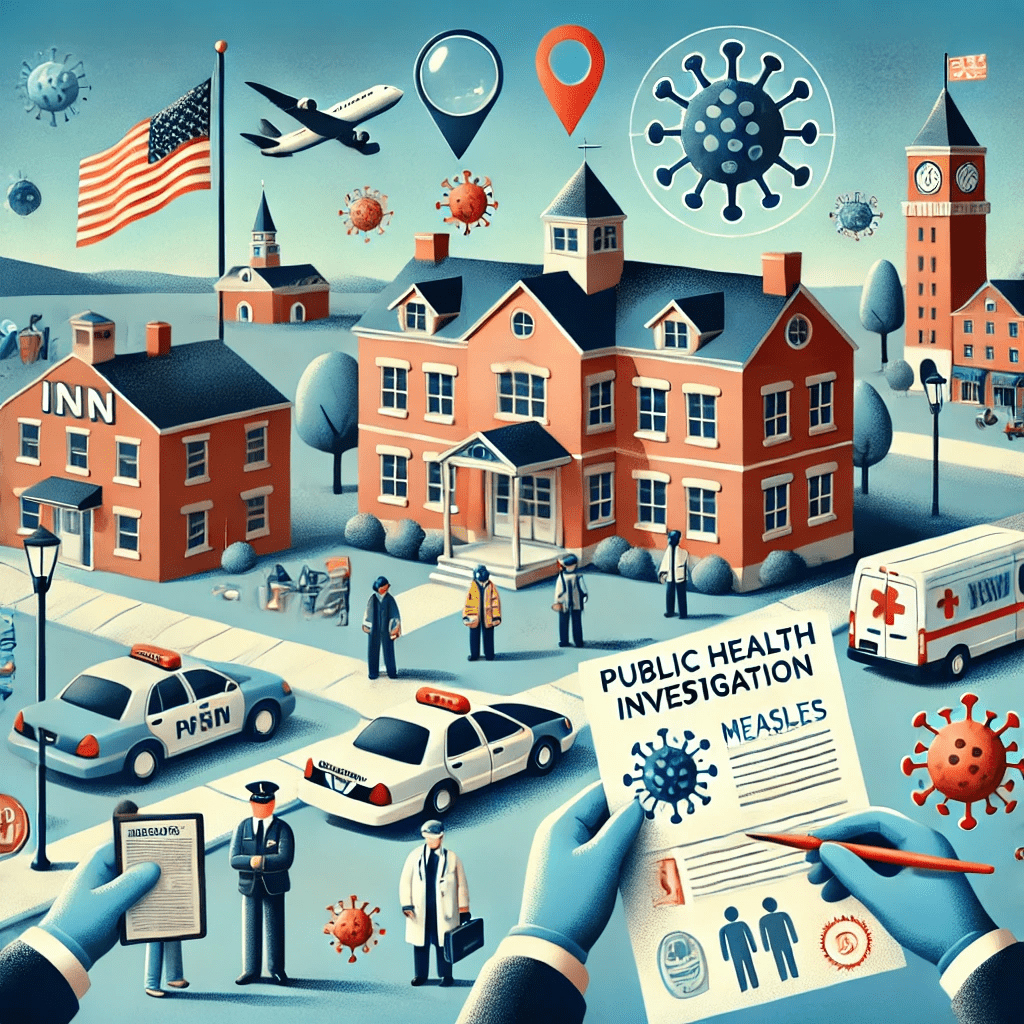Measles Exposure Investigation in New Hampshire: A Comprehensive Overview
- Posted by Afnan Zeeshan (Kazakhstan)
- Categories Health
- Date June 30, 2024
The recent measles exposure investigation in New Hampshire has raised significant public health concerns. Measles, a highly contagious viral disease, can lead to severe health complications, making timely investigations and responses crucial. This article delves into the details of the measles exposure in New Hampshire, the steps being taken to contain it, and the importance of vaccination and public awareness.
Understanding Measles
What is Measles?
Measles is an infectious disease caused by the measles virus. It primarily spreads through respiratory droplets from coughs and sneezes. The virus can remain active and contagious in the air and on surfaces for up to two hours, making it highly transmissible. Symptoms typically include high fever, cough, runny nose, red eyes, and a characteristic red rash that usually starts on the face and spreads downward.
Complications of Measles
Measles can lead to severe health complications, especially in young children, pregnant women, and individuals with weakened immune systems. Complications may include pneumonia, encephalitis (brain swelling), and even death. According to the World Health Organization (WHO), measles remains one of the leading causes of death among young children globally, despite the availability of a safe and effective vaccine.
The Measles Exposure in New Hampshire
Initial Report and Investigation
In early July, health officials in New Hampshire reported a confirmed case of measles in an individual who had visited several public places while infectious. The New Hampshire Department of Health and Human Services (NH DHHS) immediately launched an investigation to identify and notify individuals who may have been exposed to the virus.
Locations of Potential Exposure
The infected individual visited various locations, including healthcare facilities, restaurants, and retail stores, potentially exposing numerous people to the virus. NH DHHS released a list of these locations and times to alert the public and advise those who may have been exposed to monitor for symptoms and seek medical advice if needed.
Response Measures
To contain the potential outbreak, NH DHHS implemented several measures:
- Public Notifications: Issued alerts through various media channels to inform the public about the exposure risk.
- Vaccination Clinics: Organized vaccination clinics to provide the measles, mumps, and rubella (MMR) vaccine to unvaccinated individuals or those unsure of their vaccination status.
- Quarantine and Monitoring: Advised individuals who were potentially exposed to self-quarantine and monitor their health for symptoms of measles.
Importance of Vaccination
Measles Vaccine Effectiveness
The MMR vaccine is highly effective in preventing measles. Two doses of the vaccine are about 97% effective at preventing the disease, while one dose is about 93% effective. Vaccination not only protects the individual but also helps achieve herd immunity, reducing the spread of the virus in the community.
Public Health Impact
Vaccination programs have significantly reduced the incidence of measles worldwide. According to the Centers for Disease Control and Prevention (CDC), widespread use of the measles vaccine has led to a 99% reduction in measles cases in the United States compared to the pre-vaccine era. Ensuring high vaccination coverage is essential to prevent outbreaks and protect vulnerable populations.
Addressing Vaccine Hesitancy
Public Education
Public education campaigns are crucial in addressing vaccine hesitancy and misinformation. Health officials and organizations must provide clear, evidence-based information about the safety and effectiveness of vaccines to counteract myths and fears.
Engaging Community Leaders
Community leaders, including religious and local influencers, can play a significant role in promoting vaccination. Their support and endorsement can help build trust and encourage more people to get vaccinated.
Transparent Communication
Maintaining transparency about vaccine safety, side effects, and the benefits of immunization fosters public trust. Open communication from health authorities helps reassure the public and promotes vaccine uptake.
Ongoing Surveillance and Preparedness
Continuous Monitoring
Health departments continuously monitor for measles cases and outbreaks through surveillance systems. Rapid identification and response to potential cases are vital to preventing widespread transmission.
Preparedness Plans
Preparedness plans, including vaccination campaigns, public health messaging, and emergency response strategies, are essential components of effective measles outbreak management. These plans ensure that health authorities can swiftly and effectively respond to potential threats.
Conclusion
The measles exposure investigation in New Hampshire underscores the importance of vaccination, public awareness, and prompt response to infectious disease threats. By understanding the risks associated with measles and the measures needed to prevent its spread, communities can protect themselves and mitigate the impact of outbreaks. Vaccination remains the most effective tool in preventing measles and ensuring public health safety.
For more information on measles and vaccination, visit the CDC Measles webpage.
Staying informed and proactive in vaccination efforts will help protect against measles and other vaccine-preventable diseases. Public health is a collective responsibility, and by working together, we can ensure a healthier future for all.
To read more articles like this, visit: Regent Studies
You may also like




